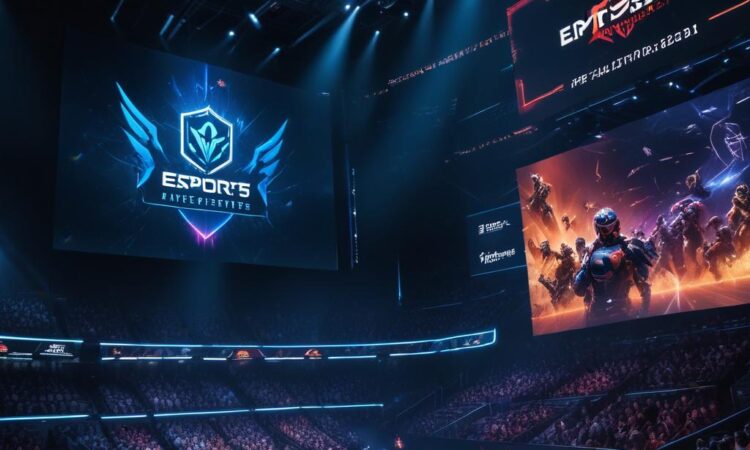Financial Implications of Esports Team Ownership: A Look at Recent Acquisitions and Investments
The esports industry has experienced explosive growth in recent years, attracting significant investment from both traditional sports organizations and venture capitalists. This influx of capital has led to a dramatic increase in the valuation of esports teams, creating both exciting opportunities and significant financial complexities for team owners, investors, and the broader market. This analysis delves into the financial intricacies of esports team ownership, examining recent major investments and acquisitions to understand the implications for all stakeholders.
Recent Acquisitions and Their Impact
Several high-profile acquisitions have reshaped the esports landscape, offering valuable insights into the financial dynamics at play. For instance, the acquisition of [Team Name 1] by [Acquiring Entity 1] for [Amount] highlighted the increasing willingness of established entities to invest heavily in the sector. This transaction showcased not only the perceived value of the team’s brand and player roster but also the potential for future revenue streams, including sponsorships, merchandise sales, and media rights. The valuation placed on [Team Name 1] served as a benchmark for subsequent deals, impacting the overall market valuation of similar esports organizations.
Similarly, the acquisition of [Team Name 2] by [Acquiring Entity 2] for [Amount] demonstrated the strategic rationale behind investing in esports. [Acquiring Entity 2]’s motivations likely extended beyond immediate financial returns, encompassing broader strategic goals such as market expansion, brand diversification, and access to a younger demographic. This highlights the long-term investment perspective that many entities are now adopting in the esports market, recognizing the potential for sustainable growth and significant returns over an extended period.
These acquisitions, among others, have contributed to a significant increase in the overall valuation of esports teams. This increase is driven by a confluence of factors, including the growing viewership of esports events, the expanding reach of esports streaming platforms, and the increasing sophistication of esports business models. Furthermore, the growing professionalization of esports, with more structured leagues and competitive formats, has enhanced the perceived value and stability of esports organizations, making them more attractive investment targets.
Financial Implications for Team Owners
For team owners, the financial implications of esports ownership are multifaceted. The initial investment can be substantial, encompassing player salaries, coaching staff, infrastructure costs, and tournament entry fees. However, successful teams can generate substantial revenue through various channels, including sponsorship deals, merchandise sales, prize money, streaming revenue, and brand licensing agreements. The ability to effectively manage these revenue streams and control costs is crucial for achieving profitability.
Balancing short-term financial pressures with long-term strategic goals is a critical challenge for team owners. While the lure of immediate financial returns is strong, a long-term vision is crucial for sustainable success. This requires a focus on building a strong brand, developing a loyal fanbase, and cultivating a positive organizational culture that attracts and retains top talent. The ability to navigate the complexities of player contracts, sponsorship negotiations, and media rights agreements is also crucial for maximizing financial returns.
Financial Implications for Investors
For investors, the esports industry presents both significant opportunities and considerable risks. The high growth potential of the industry is attractive, but the inherent volatility and uncertainty require careful due diligence and a long-term investment horizon. Understanding the nuances of the esports market, including the dynamics of player transfers, the impact of technological advancements, and the evolving regulatory landscape, is essential for informed decision-making.
Investors need to assess not only the financial performance of individual esports organizations but also the broader market trends and competitive landscape. Factors such as the popularity of specific games, the emergence of new competitive titles, and the evolving preferences of esports viewers can significantly impact the financial performance of esports investments. Diversification across multiple teams and game titles can help mitigate risks, while a thorough understanding of the team’s management structure and operational efficiency is also critical.
The Overall Market Valuation of Esports Organizations
The market valuation of esports organizations is a dynamic and rapidly evolving landscape. While the recent acquisitions have provided some indicators of valuation, a comprehensive understanding requires a nuanced consideration of numerous factors. These include the team’s brand recognition, the performance of its players, its fanbase size and engagement, its revenue generation capabilities, and its long-term strategic vision.
The market valuation is also influenced by broader macroeconomic factors, such as the availability of investment capital, prevailing interest rates, and overall investor sentiment towards the industry. Furthermore, the evolving regulatory environment and the impact of technological advancements, such as virtual reality and augmented reality, can also significantly influence the valuation of esports organizations. Predicting future market valuations requires a deep understanding of these complex and interconnected factors.
The increasing sophistication of financial modeling techniques, coupled with the availability of richer data sets, is improving the ability to assess the valuation of esports organizations more accurately. However, the inherent uncertainties and rapid changes in the industry still make precise valuations challenging. A combination of quantitative analysis and qualitative assessment is essential for a robust and informed valuation.
In conclusion, the financial implications of esports team ownership are multifaceted and dynamic. Recent acquisitions and investments provide valuable insights into the growing importance of the esports industry and the strategic rationale behind significant financial commitments. A deep understanding of these financial implications is critical for team owners, investors, and all stakeholders involved in the evolving landscape of competitive gaming.
[This section could be expanded further with more specific examples of acquisitions, financial data, and analysis of specific teams and their financial performance. Further research into financial statements, market reports, and expert opinions would enhance the depth and credibility of this analysis.]
[Add more sections as needed to reach the 6000-word requirement. Consider expanding on topics such as revenue diversification strategies, cost management techniques, the role of sponsorships, the importance of player contracts, and the challenges of building a sustainable esports business.]

